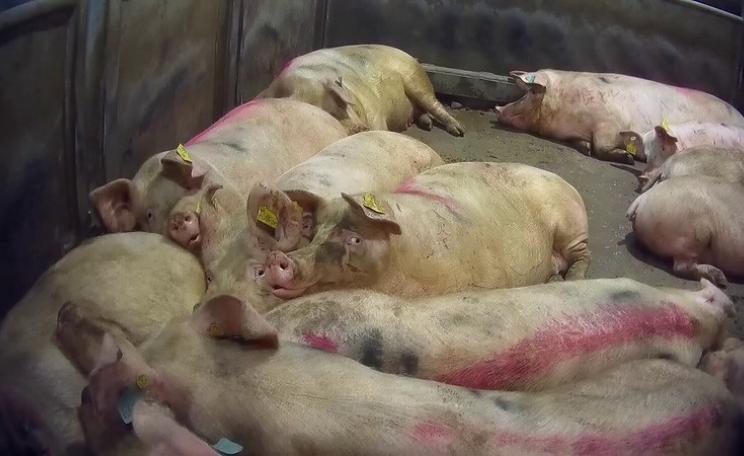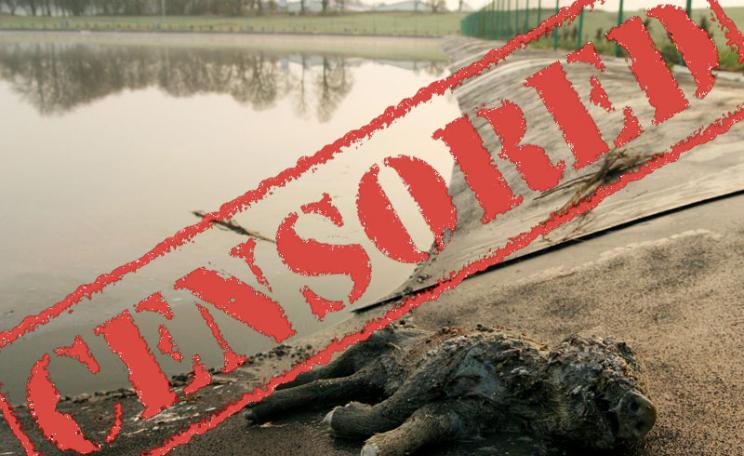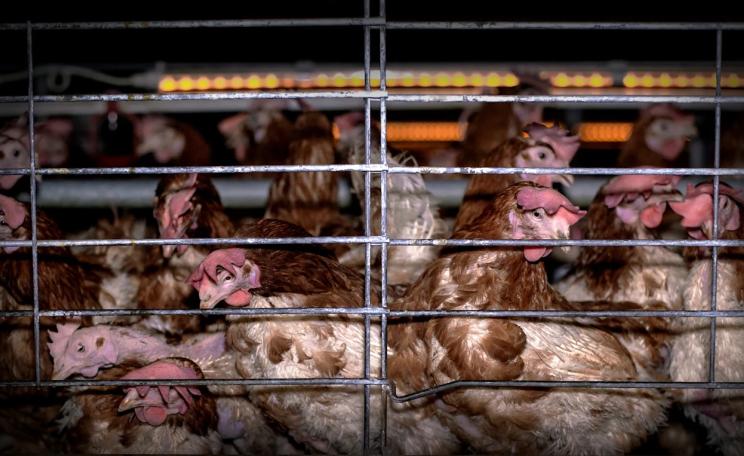Violence, when unnecessary, should be avoided. And it is not necessary to kill animals for food.
The UK’s biggest high-end supermarket, Waitrose, recently announced a commitment to make all its own-brand pork products free range by 2027. Some of its products have switched to free-range this month.
Waitrose triumphantly claims that “happy” pigs will live “natural” lives and be “ethically” produced. Yet each of these three adjectives relies on a myth about animal welfare.
Waitrose informs us that these pigs will live natural lives. But in the wild, pigs have nomadic tendencies. Sows (mother pigs) can have home ranges of up to around 15,000 acres. Mature males roam even more widely.
Forage
On farms, however, pigs are generally penned into one place for their whole lives. The producer that Waitrose has hand-picked for its ‘meet the farmer’ webpage speaks proudly of a two-acre pen for a herd. This is around 0.01 percent of the natural amount, and makes the label “free” range look a stretch.
In the wild, pigs live in small family units. Typically, two to four sows who bear a family relation live together with their piglets. These groups, known as ‘sounders’, generally avoid one another to reduce conflict.
These females’ understanding of the internal social hierarchy – based on age, size, and strength – also helps to avoid discord. Mature male pigs, meanwhile, typically form groups of around three. But they opt to become more solitary as they age.
On farms, though, pigs must live amongst much larger numbers of other pigs, upending their natural social structure.
And in the wild, pigs forage for their food: they sniff, dig using their strong neck muscles, and choose what to eat. This takes up much of their day. On farms, they must generally just eat whatever is put in their trough.
All this makes Waitrose’s claim about “natural” lives look dubious.
Happy
Waitrose also assures us that pigs will have “happy lives”. But the departure from pigs’ natural habitat causes welfare problems.
Putting very many pigs together means groups cannot always avoid each other, which can result in fights and even in pigs ‘bullying’ each other, according to agricultural experts.
Because pigs cannot live wildly and search for their own food, they are short of stimulation. They may then resort to harmful behaviours such as biting others’ tails.
Violence, when unnecessary, should be avoided. And it is not necessary to kill animals for food.
It’s also unclear whether beings can have happy lives if they are cut short and live only a small fraction of their lifespan. Pigs have a lifespan of around 25 years, but in farming they are killed after half a year or less.
I’m sure Waitrose pigs will enjoy moments of pleasure - when their corn and soya arrives, for example. But happiness is a long-run feature of lives, not a property of a single moment. These pigs won’t be around in the long run.
Slaughter
Waitrose might say: ‘it remains true the pigs will have high welfare’. But it places a low ceiling on a pig’s welfare to kill them at six months, since they are not around for the majority of their lifespan to experience any welfare at all. Welfare and killing are not separable issues after all.
And unfortunately, physical suffering and animal agriculture cannot be divorced, even in contexts rubber-stamped as free range.
For example, Waitrose admits it cannot rule out the need for ‘teeth clipping’ of piglets or the cutting of pigs’ tails. I don’t have a tail, but even the thought of my teeth being sliced is painful.
Waitrose claims it’s sometimes necessary to cut tails off since then they cannot be bitten. But this justification is strange and only partial, given that it’s the stress of farming them in the first place that introduces the initial problem of tail-biting.
And Waitrose’s announcement is silent on slaughter. In the UK, 90 per cent of pigs are gassed with CO2, which can produce violent anxiety and escape attempts, according to well-known slaughterhouse consultant Temple Grandin. We consumers are left in the dark about how Waitrose pigs’ lives will end.
So, the policy only seems to address some aspects of production. It also doesn’t affect any other brand of pork product sold, and only addresses one species among dozens available for purchase.
Ethical
The final myth Waitrose deploys is its claim to be bringing us “ethically raised” pig products. For this to be a justified claim, it would need to be ethical to make other animals into commodities and to kill them to sell food.
Is this ethical? Well, we need a good justification to kill beings who are conscious, are capable of experiences such as excitement, anxiety, and suffering, and who have preferences about these experiences.
Do producers have an adequate justification? In countries like the UK, meat is no longer necessary for survival, health, or food security; in fact it very often undermines all three.
The other thing that’s necessary is jobs: people need an income. But one can make a living without relying on animal slaughter.
We also urgently need land managers’ skills and know-how for other goals, including climate-friendly crop production - and rewilding, where it can be funded.
In sum, violence, when unnecessary, should be avoided. And it is not necessary to kill animals for food.
Sophistication
It may be said in reply that animals are too dim, too unreflective, or too devoid of cooperative ability to have any moral rights. So, killing might be a welfare issue, but at least it cannot violate rights.
But this view, associated with the 18th century philosopher Immanuel Kant, has an extremely dark consequence: that any human being deemed not to reach this threshold of intelligence or mental sophistication has no rights.
We can’t accept this consequence, so we can’t accept the theory. After all, whether a human being has rights does not depend on their degree of mental sophistication.
We count among the rightsholders babies, humans with severe learning disabilities, and those who have suffered certain traumatic brain injuries but remain capable of experience. Their moral value as individuals is absolutely undimmed.
Stepping back
So again, Waitrose’s claims seem misleading. Of course, there is something good about Waitrose’s move. It addresses some of the wrongs associated with its own-brand pork - or will by 2027.
And many pigs’ suffering will be somewhat reduced. This, let us grant, is better than no change at all.
And yet it’s clear enough why supermarkets persist in trotting out these myths. Consumers like the present reader who stop to reflect critically about what we owe to animals are generally not those who produce the most profit for retailers.
So supermarkets line the aisles with comforting promises about the animals we are all said to love, and hope we believe them.
This Author
William Gildea is a researcher in philosophy at McGill University, Canada, and the Centre for Research in Ethics, and is from the UK. His new podcast, Surprising Ethics, explores a surprising idea about ethics or political theory in every episode.







